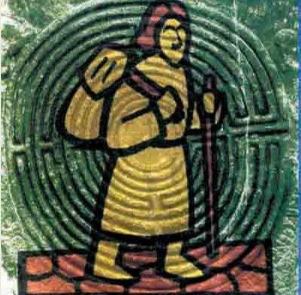La prigionia e la salvezza dell’anima da Avicenna a Suhrawardî: quali fonti?
DOI:
https://doi.org/10.13130/2035-7362/3433Abstract
In questo articolo verrà preso in esame il tema della prigionia dell’anima e della sua successiva liberazione, partendo da uno dei tre racconti visionari di Avicenna, intitolato Hayy Ibn Yaqzân e indagandone le fonti filosofiche. Si partirà dall’analisi del il mito della caverna di Platone e dell’interpretazione allegorica data ad esso dal filosofo al-Fārābī. Tenendo presente questa lettura, saranno sviluppate alcune riflessioni sull’oggetto e sul significato di questi racconti visionari: allegorie filosofiche sulla natura della conoscenza (interpretazione cui propendeva anche Suhrawardi nel Racconto dell’esilio a occidente riguardo a Hayy Ibn Yaqzân), allegorie religiose di carattere gnostico sul tema della liberazione dell’anima dalla sua prigione terrena raffigurata dall’occidente e della sua conseguente salvezza, o un insieme di queste due possibili interpretazioni.
Sebbene il focus del contributo sia l’opera avicenniana si terrà conto anche dello scritto successivo di Suhrawardī, contenutisticamente analogo, ma con finalità diverse.
In this article I study the theme of imprisonment of the soul and its subsequent release, starting from one of the three visionary tales of Avicenna, entitled Ḥayy ibn Yaqẓān. I start with the analysis of the possible sources of Islamic authors, such as the Plato’s myth of the cave and its allegorical interpretation given by the philosopher al-Fārābī.
I develop some thoughts about the Avicenna’s possible objectives in writing the visionaries tales: 1. the philosophical allegories about the nature of knowledge (in the “Tale of the exile in the West”, Suhrawardī seems to have this view), 2. the religious allegories with Gnostic character on the theme of the liberation of the soul from its earthly prison, represented by the West, and its consequent salvation, or 3. a combination of these two possible interpretations?
The article focuses on Avicenna and the philosophical sources that could have inspired his tales (Plato and al-Fārābī), and taking into account Suhrawardī’s later writing, that has a similar content, but probably with different intentions.
Downloads
Dowloads
Pubblicato
Come citare
Fascicolo
Sezione
Licenza
Gli autori che pubblicano su questa rivista accettano le seguenti condizioni:
a. Gli autori mantengono i diritti sulla loro opera e cedono alla rivista il diritto di prima pubblicazione dell'opera, contemporaneamente licenziata sotto una Licenza Creative Commons - Attribuzione che permette ad altri di condividere l'opera indicando la paternità intellettuale e la prima pubblicazione su questa rivista.
b. Gli autori possono aderire ad altri accordi di licenza non esclusiva per la distribuzione della versione dell'opera pubblicata (es. depositarla in un archivio istituzionale o pubblicarla in una monografia), a patto di indicare che la prima pubblicazione è avvenuta su questa rivista.
c. Gli autori possono diffondere la loro opera online (es. in repository istituzionali o nel loro sito web) prima e durante il processo di submission, poichè può portare a scambi produttivi e aumentare le citazioni dell'opera pubblicata (Vedi The Effect of Open Access).





